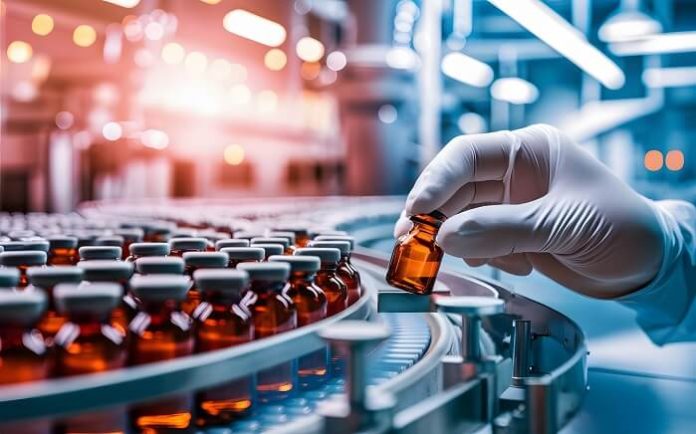The government is making a significant move to reduce its dependence on pharmaceutical imports, especially from China, by inaugurating two greenfield plants under the Production Linked Incentive (PLI) scheme.
The plants will focus on manufacturing essential pharmaceutical ingredients domestically, marking a critical push toward self-sufficiency in the country’s drug production capabilities.
Domestic Production
The plants, launched in October, will produce key starting materials (KSM) and active pharmaceutical ingredients (API), which are essential for the production of common antibiotics.
The plants will specifically focus on penicillin G, 6-APA (6-aminopenicillanic acid), and clavulanic Acid. These critical molecules have not been produced in India for over twenty years, leaving the country heavily reliant on imports, particularly from China.
Reducing Dependency on Imports
The halt in local production of the antibiotics’ building blocks has led to a strong dependency on imports. Historically, China has been the primary supplier of these key ingredients.
The new plants will reduce India’s import dependence by 50% for penicillin G and 6-APA.
Lyfius Pharma’s Facility
One of the new plants, set up by Lyfius Pharma in Kakinada, Andhra Pradesh, will produce 15,000 metric tons (MT) of penicillin G annually.
Of this, 12,000 MT will be converted into 6,000 MT of 6-APA. It is a precursor for several commonly used antibiotics, including Amoxicillin and Ampicillin.
This shift in production is expected to significantly reduce India’s reliance on imports. This is particularly true for imports from China, which accounted for 77% of Penicillin G and 94.1% of 6-APA imports in FY24.
Kinvan’s Clavulanic Acid Plant
Kinvan Private Limited (KPL) has opened a 400-MT plant in Solan, Himachal Pradesh, focused on manufacturing clavulanic acid.
This component is essential for producing antibiotics that combat bacterial resistance.
Until now, India has relied entirely on imports for clavulanic acid, with China providing 85.3% of the demand. The new KPL facility aims to reduce India’s import dependence for this vital ingredient by 40%.
Global Pharmaceutical Market
The plants, developed under the PLI scheme, are designed to meet domestic demand. They also aim to strengthen India’s position in the global pharmaceutical market.
As reported by knnindia.co.in, increasing local manufacturing capacity will help the country reduce its costs. It will also ensure a more secure and sustainable supply chain for essential medicines.

































